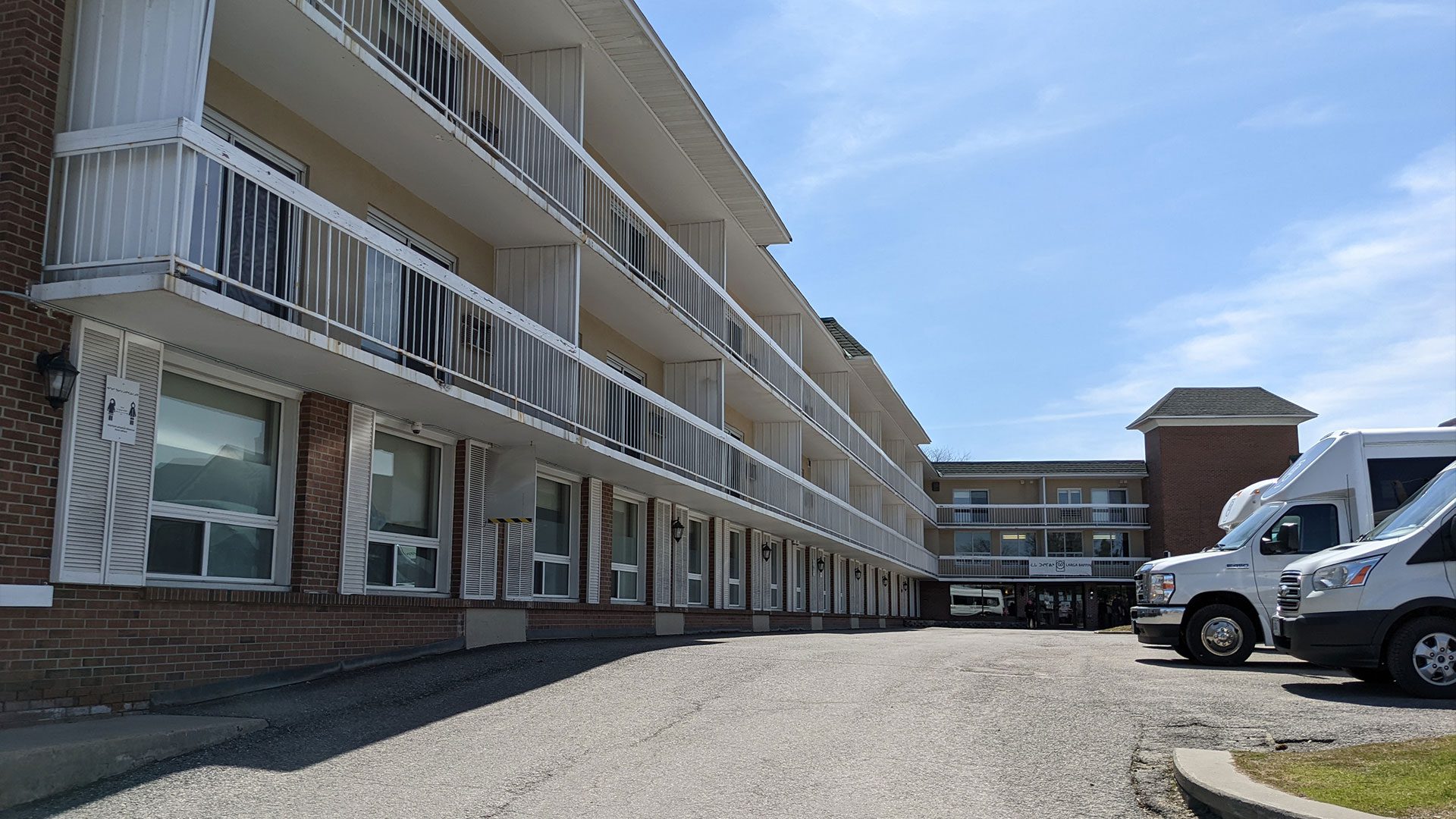An Ottawa city councillor says it’s “offensive” to hear some of the opposition to the proposed new site for Larga Baffin, a home for Inuit from Nunavut travelling to the nation’s capital for medical appointments.
“It’s the use,” said Scott Moffatt who sits on the city’s planning committee. “It’s the perception of what the use is. There’s this belief that if you bring in a certain population to your community that’s going to change your community. That there’s going to be higher crime rates, there’s going to be these things.
“I mean, just as someone who represents people, it’s offensive to hear these things. That they think that just because this one use is in your community, that you’re going to have all these negative impacts.”
Baffin Larga’s current operation is in the city’s west end. But the 103 rooms help fewer than 200 people. If there’s no room here, people are placed in a number of hotels in the city.

According to Larga Baffin, the new location in Ottawa will have 220 rooms and be able to accommodate 350 people.
“We are exceeding our ability to provide accommodation to our clients and having to place some at hotels as we do not have the room to house all clients,” says the Larga Baffin website. “The demand for service isn’t slowing down.”
According to the organization, the “gross floor area” of the proposed new building in the south end of the city is less than what is currently allowed in the area.
Current zoning laws allow for six stories with 18 metres of total height. The Larga Baffin building is 22 metres. That’s the only exception to the zoning bylaws Larga Baffin is looking for.
But there’s been pushback from the immediate community and their ward councillor.
They’re opposed to the project saying it will increase traffic, change the residential nature of the neighbourhood and bring social problems.
“While the merit of this facility is acknowledged, it is not related to the land use, zoning and potential site plan issues that we have focused on,” Deans said at a planning committee meeting last week.
“Whether it be an application for Larga Baffin or a high-rise development in Kitchissippi ward, it’s critical that we allow residents to voice their legitimate planning concerns and not pass judgment or assume they have ulterior motives.”
Deans had put forward a motion to defer consideration of Larga Baffin’s application until a further study on potential impacts could be done.
The motion was defeated.
Deans did not respond to an interview request from APTN News.
Read More:
But according to the councillor where the facility currently is currently located, none of the issues raised by community members at the proposed site has been an issue.
“There have been isolated complaints regarding a few individuals but this has not been the case in recent times,” Ward Councillor Theresa Kavanagh wrote to APTN. “Last year my office held a public information meeting for Bay Ward residents and representatives from Larga Baffin and the Tunigasvat Inuit Centre so that the local community could learn about the services that they (provide) to their clients/communities.
“This meeting brought positive results with surrounding communities having a better idea of who is staying at Larga Baffin and why. Residents ended the meeting by offering to volunteer and welcomed the residents from Nunavut to attend future community events.”
Moffatt said residents’ concerns are largely based on unsubstantiated fears of what the facility is for and who will be using it rather than legitimate reasons.
He said this type of pushback tends to rise up with certain types of development proposals including applications for group homes or women’s shelters.
“I think it’s a fear of the unknown. It’s a stigma that is attached to a certain type of facility, a certain segment of the population. It’s wildly unfair,” he said.
“It usually comes from a point of privilege. It usually comes from a point of entitlement and they are scared of things they don’t know. And they oppose it on that belief. And instead of reaching out and understanding what it is, they just get more embedded into their fear of that and they don’t want that in their community.”
The planning committee voted unanimously to move the application forward and it is slated to go to a vote before a full council on July 6.
Sending people out of Nunavut for medical appointments is a multi-million dollar operation for Nunavut.
In 2020-21, Nunavut budgeted $107.6 million for medical travel, an increase of $17.6 million from the previous year.









